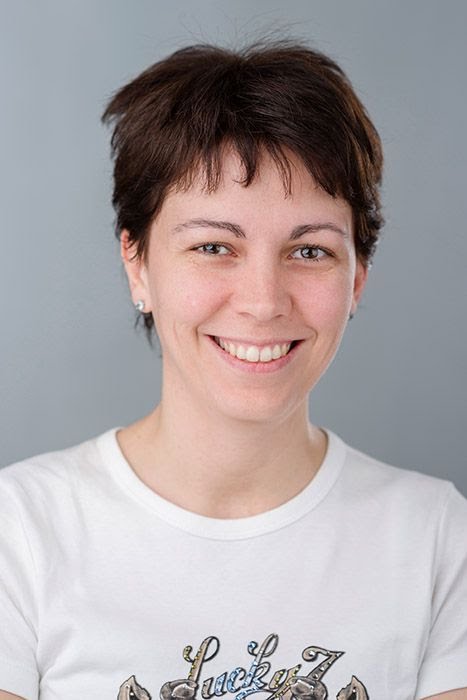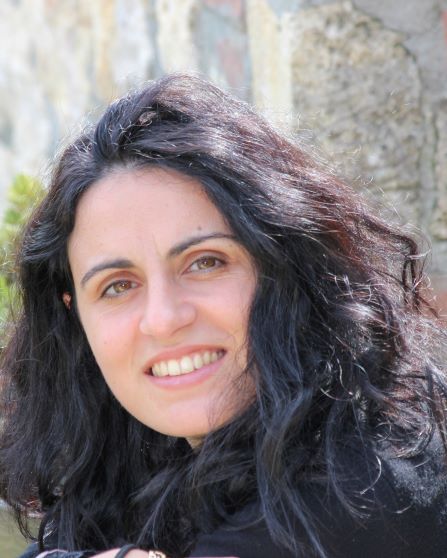Studying at the University of Verona
Here you can find information on the organisational aspects of the Programme, lecture timetables, learning activities and useful contact details for your time at the University, from enrolment to graduation.
Academic calendar
The academic calendar shows the deadlines and scheduled events that are relevant to students, teaching and technical-administrative staff of the University. Public holidays and University closures are also indicated. The academic year normally begins on 1 October each year and ends on 30 September of the following year.
Course calendar
The Academic Calendar sets out the degree programme lecture and exam timetables, as well as the relevant university closure dates..
| Period | From | To |
|---|---|---|
| First semester bachelor degree | Sep 16, 2019 | Jan 10, 2020 |
| Second semester bachelor degree | Feb 17, 2020 | Jun 5, 2020 |
| Session | From | To |
|---|---|---|
| First semester intermediate tests | Nov 4, 2019 | Nov 8, 2019 |
| Winter exam session | Jan 13, 2020 | Feb 14, 2020 |
| Second semester intermediate tests | Apr 15, 2020 | Apr 17, 2020 |
| Summer session exam | Jun 8, 2020 | Jul 10, 2020 |
| Autumn Session exams | Aug 24, 2020 | Sep 11, 2020 |
| Session | From | To |
|---|---|---|
| Autumn Session | Dec 2, 2019 | Dec 4, 2019 |
| Winter Session | Apr 7, 2020 | Apr 9, 2020 |
| Summer session | Sep 7, 2020 | Sep 9, 2020 |
Exam calendar
Exam dates and rounds are managed by the relevant Economics Teaching and Student Services Unit.
To view all the exam sessions available, please use the Exam dashboard on ESSE3.
If you forgot your login details or have problems logging in, please contact the relevant IT HelpDesk, or check the login details recovery web page.
Academic staff
Borello Giuliana
 giuliana.borello@univr.it
giuliana.borello@univr.it
 045 802 8493
045 802 8493
 stefano.gatti@univr.it
stefano.gatti@univr.it

Manzoni Elena
 elena.manzoni@univr.it
elena.manzoni@univr.it
 8783
8783
 neliana.orlandi@univr.it
neliana.orlandi@univr.it
Study Plan
The Study Plan includes all modules, teaching and learning activities that each student will need to undertake during their time at the University.
Please select your Study Plan based on your enrollment year.
1° Year
| Modules | Credits | TAF | SSD |
|---|
2° Year activated in the A.Y. 2020/2021
| Modules | Credits | TAF | SSD |
|---|
3° Year activated in the A.Y. 2021/2022
| Modules | Credits | TAF | SSD |
|---|
| Modules | Credits | TAF | SSD |
|---|
| Modules | Credits | TAF | SSD |
|---|
| Modules | Credits | TAF | SSD |
|---|
| Modules | Credits | TAF | SSD |
|---|
Legend | Type of training activity (TTA)
TAF (Type of Educational Activity) All courses and activities are classified into different types of educational activities, indicated by a letter.
Business management (2019/2020)
Teaching code
4S00124
Teacher
Coordinator
Credits
9
Language
Italian
Scientific Disciplinary Sector (SSD)
SECS-P/08 - MANAGEMENT
Period
Second semester bachelor degree dal Feb 17, 2020 al Jun 5, 2020.
Learning outcomes
Within a general framework of consonant relationships among the company and its environment, this course aims at introducing students to the topics of business management and decision-making in order to increase firm's competitiveness. More in detail, it aims at delivering students the main concepts of company and management, company functions and decisions criteria and logic, not only in theoretical terms but also in terms of practical implications. By completion of the course, students will have the key-concepts needed to understand firm’s behavior and functioning; moreover, they will be able to devise relevant strategies both at company function level and at a company as a whole level.
Program
The company’s concept
Good, services and experiences
The company’s functions
The company’s goals
The company and its environment
Corporate social responsibility
The entrepreneur and the birth of the company
The factors of production
The function of production and the choices of integration and decentralization of production
The organizational structure and the management of the staff
Innovation and corporate creativity
Corporate decision-making processes
The business plan
The methods of economic convenience
The methods for the analysis of the economic convenience of industrial investments
The problems of operational comparison
Vision, mission and values
Business strategies
Company and marketplace in a historical perspective
In-store customer shopping experience and the challenges of retailer between physical and digital space
* * * * *
Teaching methods
Lessons will be given in Italian, using experiential learning approach and interactive teaching. The teaching methods include both lectures regarding the transmission of basic notions, key categories and fundamental application tools, and exercises about the implementation of the methods of economic convenience. In addition to frontal lessons, the topics covered by the program are dealt with practical lessons of active teaching such as cases study, group projects in the classroom and the participation of scholars, entrepreneurs and business experts.
The individual reception service is available throughout the academic year. It is managed by the teacher on the web pages and constantly updated.
During the lesson semester, there is a tutoring service, organized by senior students, trained by the teacher. Tutoring is recommended to students that have never studied accounting and management in their scholastic careers.
* * * * *
Reference books
1. Claudio Baccarani, Federico Brunetti, Elena Giaretta (a cura di), Impresa e management tra competitività e progresso, Giappichelli, Torino, 2015.
2. Angelo Bonfanti, Customer shopping experience. Le sfide del retail tra spazio fisico e digitale, Giappichelli, Torino, 2017 (no chapter 2).
The content of the textbooks, as well as the lessons and exercises, is part of the program. Further in-depth educational material is available during the semester of lesson on the e-learning platform.
Despite the program and the textbooks are the same:
- attending students are exempted from studying the following chapters: 1, 14 and 15 of the text Claudio Baccarani, Federico Brunetti, Elena Giaretta (a cura di), Impresa e management tra competitività e progresso, Giappichelli, Torino, 2015
- non-attending students are invited to study all this text as a whole.
| Author | Title | Publishing house | Year | ISBN | Notes |
|---|---|---|---|---|---|
| Angelo Bonfanti | Customer shopping experience. Le sfide del retail tra spazio fisico e digitale | Giappichelli | 2017 | 9788892114630 | escluso il capitolo 2 |
| Claudio Baccarani, Federico Brunetti, Elena Giaretta (a cura di) | Impresa e management tra competitività e progresso (Edizione 2) | Giappichelli | 2015 | 9788834859384 |
Examination Methods
The examination is both written and oral. It is possible to take the oral examination only if the evaluation of written exam is sufficient (≥ 18/30).
The written text aims to test student’s knowledge about syllabus arguments and capability to apply methods about economic convenience.
More precisely, the written test covers the various topics in the program and is divided into two parts. The first part includes 1 open question to be answered in a dedicated space. This question is aimed at assessing the knowledge of 3 basic notions of the discipline as well as the ability to effectively use the company language. The punctual and complete knowledge of all 3 basic notions is required to be admitted to the assessment of the second part of the written test.
The second part is aimed at assessing the key categories and the fundamental applicative tools of the discipline. It includes 4 open questions to be answered in a dedicated space and 1 exercise about economic convenience. The questions are aimed at assessing the general vision of the discipline, the deepening of the topics and applying the concepts to business management.
To pass the written test and access the oral examination, the minimum score is 18/30.
The oral examination covers the program as a whole and, first of all, verifies the overcoming of any gaps that emerged from the written test. The oral examination is aimed at assessing the candidate’s critical analysis skills, as well as verifying the deepening of the topics.
The final assessment is expressed in 30ths and takes into account all the tests prepared for the purpose of assessing learning.
Students are advised to take the Business Management teaching and examination after having acquired the specific skills of the Business administration teaching.
Given that the teaching of Business Management is a basic course, very rich in concepts and basic exercises, this teaching is not recommended for Erasmus students.
------- interim examination -------
In order to encourage the systematic and assiduous study of this teaching starting from the first day of lesson, in the week from April 15, 2020 (Aula Magna of Silos di Ponente), an interim examination is organized. This test provides students with the opportunity to verify their level of learning in progress. For these reasons, the interim examination is optional.
The interim examination is written and in “partial voting” mode: this means that - if it is passed - substitutes the written test.
The interim examination is evaluated in 30th and is valid only in the summer session of examinations after the lessons (June-July 2020), if the score is at least 18/30ths.
Those who pass the interim examination access the final examination which is an oral examination.
The details about the programs of the interim and final examination are communicated at the beginning of the course in the e-learning section.
Type D and Type F activities
Nei piani didattici di ciascun Corso di studio è previsto l’obbligo di conseguire un certo numero di crediti formativi mediante attività a scelta (chiamate anche "di tipologia D e F").
Oltre che in insegnamenti previsti nei piani didattici di altri corsi di studio e in certificazioni linguistiche o informatiche secondo quanto specificato nei regolamenti di ciascun corso, tali attività possono consistere anche in iniziative extracurriculari di contenuto vario, quali ad esempio la partecipazione a un seminario o a un ciclo di seminari, la frequenza di laboratori didattici, lo svolgimento di project work, stage aggiuntivo, eccetera.
Come per ogni altra attività a scelta, è necessario che anche queste non costituiscano un duplicato di conoscenze e competenze già acquisite dallo studente.
Quelle elencate in questa pagina sono le iniziative extracurriculari che sono state approvate dal Consiglio della Scuola di Economia e Management e quindi consentono a chi vi partecipa l'acquisizione dei CFU specificati, alle condizioni riportate nelle pagine di dettaglio di ciascuna iniziativa.
Si ricorda in proposito che:
- tutte queste iniziative richiedono, per l'acquisizione dei relativi CFU, il superamento di una prova di verifica delle competenze acquisite, secondo le indicazioni contenute nella sezione "Modalità d'esame" della singola attività;
- lo studente è tenuto a inserire nel proprio piano degli studi l'attività prescelta e a iscriversi all'appello appositamente creato per la verbalizzazione, la cui data viene stabilita dal docente di riferimento e pubblicata nella sezione "Modalità d'esame" della singola attività.
ATTENZIONE: Per essere ammessi a sostenere una qualsiasi attività didattica, inlcuse quelle a scelta, è necessario essere iscritti all'anno di corso in cui essa viene offerta. Si raccomanda, pertanto, ai laureandi delle sessioni di dicembre e aprile di NON svolgere attività extracurriculari del nuovo anno accademico, cui loro non risultano iscritti, essendo tali sessioni di laurea con validità riferita all'anno accademico precedente. Quindi, per attività svolte in un anno accademico cui non si è iscritti, non si potrà dar luogo a riconoscimento di CFU.
| years | Modules | TAF | Teacher |
|---|---|---|---|
| 1° 2° 3° | Enactus Verona 2020 | D |
Paola Signori
(Coordinator)
|
| 1° 2° 3° | Parlare in pubblico e economic writing | D |
Martina Menon
(Coordinator)
|
| 1° 2° 3° | Samsung Innovation Camp | D |
Marco Minozzo
(Coordinator)
|
| 1° 2° 3° | Simulation and Implementation of Economic Policies | D |
Federico Perali
(Coordinator)
|
| years | Modules | TAF | Teacher |
|---|---|---|---|
| 1° 2° 3° | Simulation and Implementation of Economic Policies | D |
Federico Perali
(Coordinator)
|
| years | Modules | TAF | Teacher |
|---|---|---|---|
| 1° 2° 3° | Parlare in pubblico e economic writing | D |
Martina Menon
(Coordinator)
|
Career prospects
Module/Programme news
News for students
There you will find information, resources and services useful during your time at the University (Student’s exam record, your study plan on ESSE3, Distance Learning courses, university email account, office forms, administrative procedures, etc.). You can log into MyUnivr with your GIA login details: only in this way will you be able to receive notification of all the notices from your teachers and your secretariat via email and also via the Univr app.
Graduation
List of thesis proposals
| theses proposals | Research area |
|---|---|
| Proposte di tesi triennali | Various topics |




























